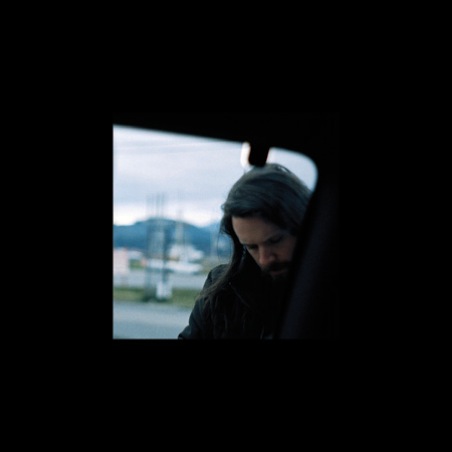As the calendar turns to face the colder winds ahead, out from the thin, cool air comes J Tillman’s seventh proper release and third contribution to Western Vinyl, Singing Axe. I say “thin air” because the bearded bard is beginning to make a habit out of conjuring up albums in between release-circuits with his other band, and this latest effort was quite literally born rather hastily; it was recorded in three days in a Chicago studio in February 2010 with the help of Bob Weston and Steve Albini.
Tillman’s music has been and continues to be an ethereal experience. His sound, while not peppered by complex musicianship, has a delicately feudal sense of perspective that finds a way to speak volumes. At face value, his style of folk is certainly quieted, but never empty – his songs leave plenty of room for the characters and settings of his narratives to take flight, and that they do. Tillman’s voice glides easily over these eleven tracks at a near-whisper, and frames each narrative in such a way that it’s as if these songs have been around for centuries and we’re the lucky ones who get the opportunity to pass along the oral tradition. This selection remains as bare and vulnerable as anything he’s ever done, and while still leaving room for plenty more accompaniment, Tillman chooses to sonically forge his tales alone, and as gradually as his acoustic allows him to.
“Three Sisters,” the album’s introduction, greets us with a dreary force as Tillman strikes a humid chord and keeps time on the body of his guitar. A scratchy drum loop is injected about halfway through the opening cut, which expands the scope of the sound tenfold, and fills out some of the space Tillman is known for leaving in his songs. Never do these additions spoil the solemn, primitive moods; in fact, for the most part, they prevent the songs from blending a bit too close together, thus losing any individuality. The wavering hum on the chorus of “Our Beloved Tyrant” has the same effect, and is one of a few subtle but important supplements that provide an apt canvas ripe for Tillman’s vivid lyrical images.
The lyrics on Singing Axe are stark and lucid, and many songs here carry a clear Biblical motif. Tillman’s narrative is slow to unfold in just about every selection, but as it does, the foreground and background culminate to a reveal an undeveloped world akin to an earlier part of history. The settings are pastoral and the characters, such as the repressed son in “One Task,” are tried. It’s the brief moments of unfiltered life – one of which occurs when the son reflects on the severity of the relationship with his horse and says, rather suddenly, “I could feel the heat of old lightnin’” – that make Tillman’s writing especially personal and satisfying. The conflicts are prevalent and the flashes of an antiquated time bend and curve around the saccharine acoustic melodies which encircle them.
The degree of attachment that J. Tillman keeps with what he sings is not like most folk artists today, and it plainly comes across in the end result. Intimacy reflects off of both the nude instrumentation as well as his stories and creates and sustains a warm, welcoming atmosphere – every song as lush and as rich in detail as the next. To modify the words of a great American writer; he sings of the heart, not of the glands.

